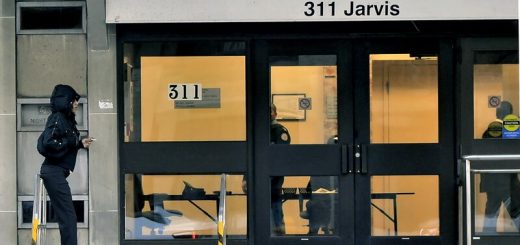R v Nguyen Affirms 18-Month Provincial Court Ceiling Applies to Part I Provincial Offences.

On September 30, 2020, the Ontario Court of Appeal (“ONCA”) held in R v Nguyen, 2020 ONCA 609 [Nguyen] that the 18-month presumptive ceiling established in R v Jordan, 2016 SCC 27 [Jordan] , which governs what constitutes unreasonable delay under s. 11(b) of the Canadian Charter of Rights and Freedoms [Charter], applies to proceedings under Part 1 of the Provincial Offences Act, RSO 1990, c P.33 [the Act]. The decision could have important implications for how accused individuals and/or legal representatives approach a charge under the Act in which the fine for the offence is not worth the stress of waiting for a trial and the costs associated with it.
Jordan Framework
In its decision in Jordan, the Supreme Court of Canada (“SCC”) settled the uncertainties surrounding the right to a trial within a reasonable time pursuant to s. 11(b) of the Charter. Section 11(b) serves to protect accused individuals’ interest in security, liberty, and a fair trial. It stipulates that any person charged with an offence has the right to be tried within a reasonable time. The underlying purpose of this provision extends beyond protecting the interests of an accused. It extends to society’s interests in protecting an accused person’s right to humane and fair treatment, in enforcing the law warranting the expedited completion of a criminal proceeding, and in maintaining the overall public confidence in the administration of justice.
Jordan established a framework governing unreasonable delay under s. 11(b) of the Charter. In Jordan, the SCC determined two presumptive ceilings beyond which delay becomes unreasonable: 30 months for matters proceeding before the Superior Court, and 18 months for matters proceeding before the provincial court.
Provincial Offences Act
The Provincial Offences Act governs much of the process for the prosecution and enforcement of offences that are created by provincial legislation, regulations, and municipal by-laws. The purpose of the Act is to replace the summary conviction procedure for the prosecution of provincial offences, including the provisions adopted by reference to the Criminal Code, RSC, 1985, c C-46. It is designed to provide a fair, efficient, and convenient method of dealing with the typically minor offences that come before the Provincial Offences Court.
The Act contains three distinct parts that govern the commencement of proceedings. Part 1 prescribes proceedings by way of a certificate of offence, often referred to as “ticketing” process, and is used for less serious offences. This part mostly applies to charges under the Highway Traffic Act, RSO 1990, c H.8, Compulsory Automobile Insurance Act, RSO 1990, c C.25, Liquor License Act, RSO 1990, c L.19, and Trespass to Property Act, RSO 1990, c T.21, where an accused has the option to pay a fine or dispute the alleged offence. Proceedings under Part 2 apply exclusively to parking offences, and are commenced by Parking Infraction Notice. Part 3 proceedings are for offences that must be brought before a Justice of the Peace for a resolution, and cannot be solved through the payment of a set fine. An accused under this part is usually served with a summons outlining a set date for an appearance before a Justice of the Peace.
Jordan Applies to Streamlined Proceedings
Cases following Jordan addressed trial delay in certain areas where matters are designed to be dealt with expeditiously. In the case of R v KJM, 2019 SCC 55 [K.J.M.], the majority ruled that the 18-month presumptive ceiling should be applied in youth cases under the Youth Criminal Justice Act, SC 2002, c 1. Moldaver J, in this case, explained that setting new ceilings would undermine the uniformity of the established ceilings in Jordan, rendering it impracticable. The Ontario Court of Justice (“ONCJ”) provided a different analysis of trial delay in another streamlined context in the earlier case of York (Regional Municipality) v Tomovski, 2017 ONCJ 785 [Tomovski]. In Tomovski, they suggested that Jordan does not apply to proceedings under Part 1 of the Provincial Offences Act, and that a lower presumptive ceiling was needed, setting a 14-month delay ceiling. However, the ONCA, declining to follow Tomovski, held in Nguyen that the time frame set by the SCC in Jordan is applicable to proceedings under the Provincial Offences Act.
History of the Proceeding
Mr. Leonardo Graci and Mr. Phuong Nguyen (together, the “Appellants”) were both charged with an offence under the Highway Traffic Act in March and April of 2017 (Nguyen, paras 3-4). Mr. Graci’s trial was meant to take place on May 14, 2018, a net delay of 12 months and 12 days. Mr. Nguyen’s trial was set on May 22, 2018, a net delay of 13 months and 10 days. The Appellants each filed an application under s. 11(b) of the Charter requesting a stay of proceedings due to the delay.
Mr. Graci’s section 11(b) application was heard and dismissed on the day of trial, and subsequently, he was convicted of speeding. Similarly, Mr. Nguyen’s application was also dismissed, leading to his conviction for failing to stop at a red light (Nguyen, paras 6-7). The Appellants brought appeals to the ONCJ.
The ONCJ Judge, addressing the question of the presumptive ceiling, did not follow the decision of Tomovski. She held that Jordan specifically decided that matters in provincial court have a reasonable limit of 18 months, and Part 1 offences are provincial court proceedings. Following a different presumptive ceiling would amount to a return to the uncertainty that existed under R v Morin, [1992] 1 SCR 771 (Nguyen, para 11).
In dealing with the Appellants’ entitlement to a stay of proceedings, the ONCJ Judge rejected the Appellants’ submissions that (1) they took reasonable steps to expedite their cases and (2) their cases took markedly longer than they reasonably should have (Nguyen, para 12). She accepted the findings of the Justices of the Peace that the Appellants had not made substantive efforts to secure earlier trial dates (Nguyen, para 13). Furthermore, she explained the factors to weigh in the test to decide if a case took considerably longer than was reasonable, noting that in cases where the delay is below the ceiling, trial judges must use their experience and expertise in their jurisdiction in determining the reasonableness of the time to trial (Nguyen, para 14).
The issues raised on appeal were whether the 18-month presumptive ceiling established in Jordan or another shorter period of time apply to proceedings under Part 1 of the Provincial Offences Act, and whether the Appellants were entitled to stays despite the delays being below the presumptive ceiling.
Ontario Court of Appeal Decision
The ONCA dismissed Mr. Nguyen’s and Mr. Graci’s appeals (Nguyen, para 31). In determining whether the 18-month presumptive ceiling applies to proceedings under Part 1 of the Provincial Offences Act, the Court of Appeal adopted reasoning from K.J.M. In K.J.M, Moldaver J. recognized the reasons why youth matters should proceed expeditiously, but found that it was unnecessary to introduce lower presumptive ceilings for such matters (Nguyen, para 23). Moldaver J. further explained that setting a different ceiling for youth matters would be irreconcilable with the existing uniform-ceiling approach from Jordan, and would subvert the streamlining purpose of section 11(b) (Nguyen, para 24). In applying this reasoning to the case at hand, the ONCA held that need for a timeliness approach does not justify the need for a different presumptive ceiling for provincial offences. Accordingly, the ONCA concluded that the Jordan framework applies to proceedings under Part 1 of the Provincial Offences Act (Nguyen, paras 25-26).
Addressing whether the Appellants are entitled to a stay of proceedings, the ONCA upheld the initial ONCJ judge’s decision. In finding whether the case took markedly longer than reasonable, the Court considered factors such as case complexity, local considerations, and whether the Crown took reasonable steps to expedite the proceedings. The Court noted that the Justices of the Peace who tried the Appellants’ cases exercised their extensive knowledge and familiarity with the jurisdiction’s local considerations in finding that there was not an unreasonable trial delay (Nguyen, para 14). Furthermore, the Court stated that an application under section 11(b) does not impose an obligation on the Crown to obtain earlier dates. The Appellants were provided with the earliest available trial dates, which were well below the presumptive ceiling (Nguyen, para 17).
Implications
The decision in Nguyen provides us with clarity on the applicability of the Jordan framework to provincial courts, specifically matters under Part 1 of the Provincial Offences Act. However, the 18-month ceiling it upholds in these matters interferes with the intended goal of Part 1 of the Provincial Offences Act, which is to expedite the prosecution of the vast number of minor offence cases handled by the provincial courts. To avoid long delays for a trial, will persons charged under Part 1 be compelled to plead guilty? It seems plausible that an accused person would be less likely to contest a $50 speeding ticket that might result in an 18-month wait for a trial, opting instead to pay the imposed fine. This could have a major impact on public confidence in the administration of justice.
It would be unwise to downplay the importance of Nguyen because the ticket was comparatively minor, as the impact of the underlying principle could be far-reaching. The COVID-19 pandemic has dramatically altered everyone’s lives and livelihoods. Accused individuals will be subjected to prolonged periods of anticipation at a time when stress levels are already high. In pursuing justice, they run the risk of incurring considerably higher legal costs than the penalty or fine levied by the offence itself. With such lengthy delays, the legal system will fail to address the needs of the people it aims to serve.
There is no question that the courts have been placed under tremendous pressure during these uncertain times. Yet, a year after the declaration of COVID-19 as a global pandemic, it appears that courts are prepared to exclude the COVID-19 related delays from the Jordan calculation. Recent decisions across Canada, such as R v Ali Ismail, 2020 BCPC 144 and R v Folster, [2020] MJ No 187 (QL) (Man Prov Ct), held that COVID-19 was an exceptional circumstance under the Jordan framework, ruling that the delays the lockdowns have caused should be excluded from the delay calculation under s. 11(b). There is no way to predict if shorter delays would justify a stay. This will depend on whether the representative has made a sustained and substantive effort to expedite the matter. This suggests that prosecutors could repeatedly rely on the pandemic to justify delays, making it difficult, if not impossible, for accused individuals to obtain a stay of proceedings.
Conclusion
The system-wide overload has hastened the inevitable modernization of courts. It will be important to see how court processes continue to evolve. It may be that the use of remote hearings to manage cases as quickly as possible and prevent lengthy and further delays are the solution. One thing is clear: something has to change if Ontarians are to benefit from the efficient justice system they need.








Join the conversation